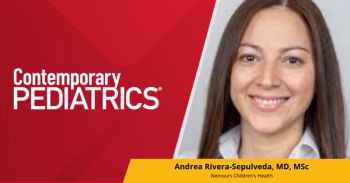
National child organization leaders call on candidates to address health issues
The American Academy of Pediatrics (AAP) and other organizations called on political leaders to address pressing health issues of children nationwide at a news event convened by Every Child Matters (ECM) in Washington, D.C., on September 16.
The American Academy of Pediatrics (AAP) and other organizations called on political leaders to address pressing health issues of children nationwide at a news event convened by Every Child Matters (ECM) in Washington, D.C., on September 16.
At the event, which was paralleled by similar campaigns occurring in all 50 states, ECM founder and president Michael R. Petit, AAP president Dr. Renee R. Jenkins, pediatrician and author Dr. T. Berry Brazelton, and other child organization leaders discussed uninsured children, underfunded child health programs, and other related concerns that presidential candidates Sen. John McCain and Sen. Barack Obama should address in their campaigns. Petit stated the ECM initiative, dubbed "Step up for kids," is co-sponsored by a total of 30 national child organizations.
Other event speakers included Dr. Elizabeth J. Clark, executive director of the National Association of Social Workers, and James M. Hmurovich, president and CEO of Prevent Child Abuse America.
One of the highlighted issues included current lack of funding for child health services. Dr. Brazelton pointed out that the national school readiness program Head Start has lost $1 billion in funding over the past 6 years, and 2 million children eligible for essential services cannot access them due to lack of state funding.
"We are asking candidates to put forward a budget that speaks to the needs of children," Petit said. "We must close the large investment gap."
Petit also mentioned that the greatest disparities between states in terms of health care access for children highly correlate with states that have the highest minority populations.
"Removing disparities is good for all children," not just those who are more disadvantaged, added Dr. Jenkins.
Dr. Jenkins emphasized that political leadership "must do more" to address child health issues. She emphasized the need for age-appropriate medical care, as well as preventive care, immunization, well-child visits, and developmental services. She pointed out that one quarter of the uninsured population in America is 21 or younger.
She also mentioned that the State Children's Health Insurance Program will need support in Congress if it is to survive the end of its current extension on March 31, 2009.
According to ECM's Homeland Insecurity (2nd edition, 2008), authored by Petit, 13 million American children live in poverty, eight million are without health insurance, and three million are reported abused or neglected. In addition, the U.S. has the second highest child poverty rate among the world's 26 richest countries, and as many as 27 million children in the U.S. were uninsured at some time over the last two years.
"It's no longer enough [for political candidates] to kiss a baby or hold a child in their arms during the campaign," Dr. Jenkins said.
ECM outlines the following issues for political candidate to address:
- More than 8 million children have no health insurance in the U.S. How do you propose to ensure that children grow up healthy and have access to comprehensive health care?
- More than 3 million children nationwide were reported abused and neglected in 2006. What are your plans to keep all children safe from violence in their homes, schools, and communities?
- Millions of children are left alone every day after school. What is your position on how to keep children safe and supervised in the late afternoon and early evenings?
- Millions of children lack access to early education opportunities. What is your position on early care and education, including preparing children for kindergarten?
- More than 13 million of America's children live in poverty. What would you do to help families with children become economically self-sufficient and able to provide for their families needs?
- Millions of children have a parent in prison. How would you address the special needs of the children?
Newsletter
Access practical, evidence-based guidance to support better care for our youngest patients. Join our email list for the latest clinical updates.








